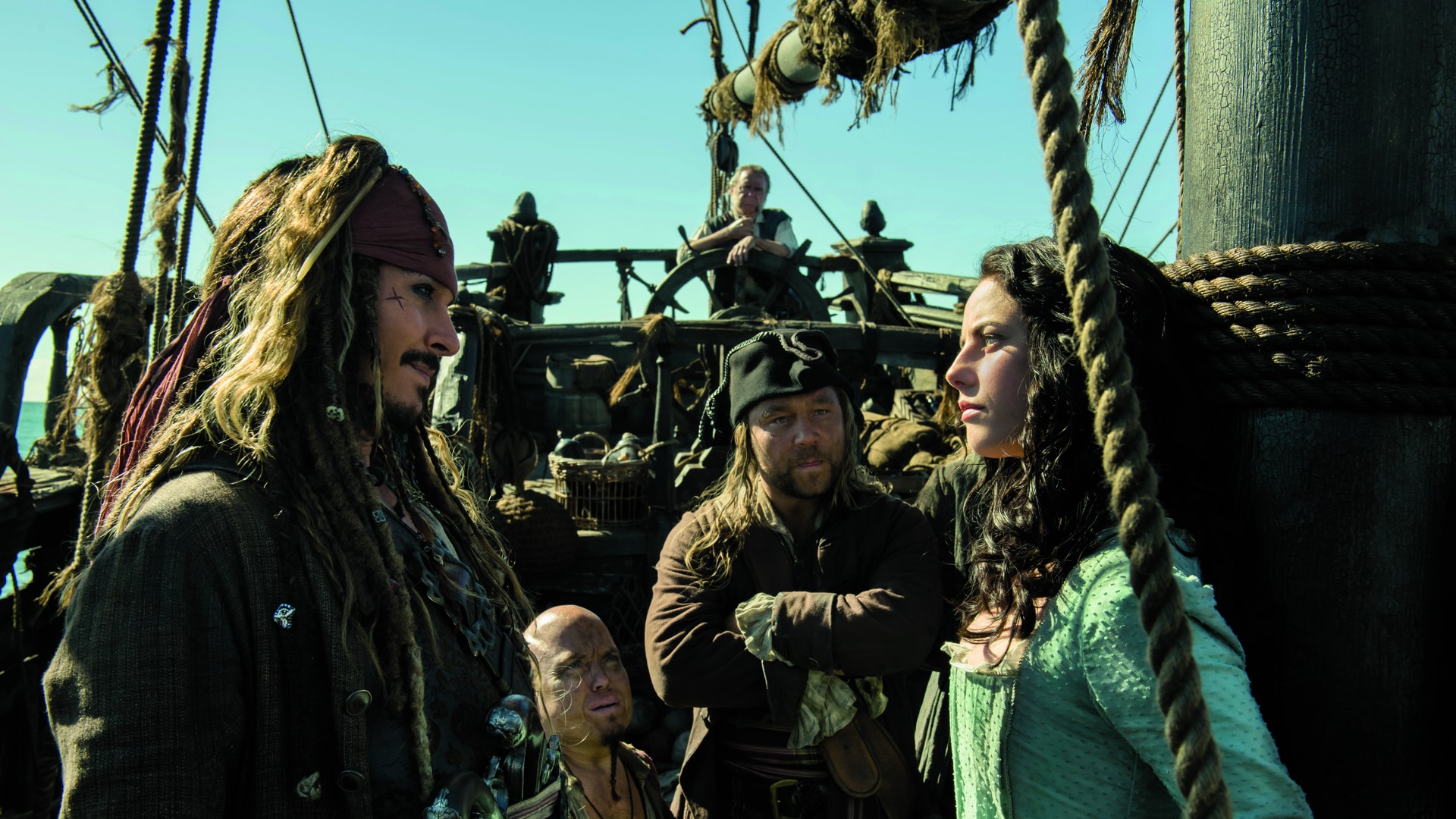There is a strange feeling that settles on you within the first half hour of the new Disney Pirates of the Caribbean film. And it’s not the presence of the reputationally tarnished Johnny Depp as a comedy alcoholic. Nor is it the laboured joke about the scientific Beauty-and-the-Beast-Belle-like heroine Carina being confused with a prostitute by the pirates. “I’m a HOROLOGIST.” Or even one of the two other women in the film with a speaking part being the fat, ugly and ginger one Sparrow is forced to marry. No, it is not quite any of those things.
What weirds you out is the realisation that you’re watching a comedy lavishly recreating the peak of the slave trade-era Caribbean and there’s not a single reference to it anywhere. Not in the crowd of entirely white people running around as the pirate gang come to rescue Jack Sparrow from a hanging. Not when the Royal Navy ship turns up with its nasty captain boasting about how the British Empire rules the waves.
Now you might say, it’s taken you five films to notice this? And in a film full of magic curses and ghosts? Twitter fans inform me there’ve even been references to Sparrow’s opposition to slavery in earlier films, though one is in a deleted scene. Oh and just to declare all the facts, there are at least two black pirates in the crew in this latest film. Hurrah. If you read my column in January you’d remember how I praised Disney for how far it’s embedded progressive values in films such as Moana.
But what POTC5 reveals is an interesting challenge around mainstream culture. Does selective whitewashing matter? I mean, it’s just a summer blockbuster, right?
The films were spawned from one of Walt Disney’s original rides at Disneyland. Right through till 1996 visitors rode in boats through a sacking of a Caribbean town, with audio-animatronic screaming women being chased by leering pirates and auctioned off as sex slaves. Seriously. It really didn’t bother people. I visited several times over my childhood and like all girls growing up in the 1970s and ’80s I avoided thinking about what it represented. So much film and TV entertainment in my youth was full of what teens would now call “rapey-ness”. And 21 years on from its
disappearance I enjoy freaking out younger people by describing the ride’s original tastelessness. Ask yourself, would it be okay to have it back now? Really? Thought not.
When Disney finally decided the raping-women sequence was outdated, I reported on it while the BBC’s LA correspondent. In a triumph of efficient repurposing the women would still flee the pirates but holding plates of delicious food. So THAT’S what the pirates were after.






